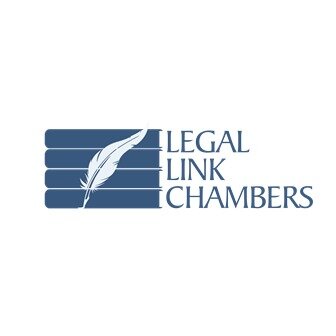Best Contract Lawyers in Kigali
Share your needs with us, get contacted by law firms.
Free. Takes 2 min.
List of the best lawyers in Kigali, Rwanda
About Contract Law in Kigali, Rwanda
Contract law in Kigali, Rwanda, is governed by the Civil Code, which outlines the fundamental principles of forming legally binding agreements. Contracts are essential in both personal and business relationships, providing a framework for the exchange of goods, services, money, or promises. The legal environment in Kigali is influenced by civil law traditions, emphasizing written agreements and established legal standards. Whether you're engaging in employment agreements, rental contracts, or sales transactions, understanding the local contract law is crucial for ensuring that your agreements are enforceable and fair.
Why You May Need a Lawyer
Engaging a lawyer for contract-related matters in Kigali can be beneficial in various situations. Common instances include negotiating terms in complex agreements, ensuring compliance with local regulations, dealing with contract breaches, and navigating disputes. Businesses may need legal assistance when drafting service agreements, partnership contracts, or licenses to ensure clarity and minimize legal risks. Individuals might require a lawyer for personal contracts like leases, employment terms, or significant purchases. A skilled lawyer can help interpret legal jargon, protect your interests, and provide representation if disputes arise.
Local Laws Overview
The key aspects of contract law in Kigali, Rwanda, are largely influenced by the Civil Code. Key elements include:
- Capacity: Parties entering a contract must have the legal capacity to do so, meaning they must be of legal age and sound mind.
- Consent: A valid contract requires mutual consent without duress or undue influence.
- Legality: The contract's purpose must be lawful under Rwandan law.
- Form: While oral contracts are recognized, written contracts are preferred for their clarity and evidence in disputes.
- Execution: Proper execution of contracts involves parties signing and acknowledging obligations.
These elements ensure agreements are legally binding and enforceable in court, providing protection and recourse for involved parties.
Frequently Asked Questions
What is a legally binding contract?
A legally binding contract in Kigali is an agreement that is enforceable by law, consisting of an offer, acceptance, capacity, consent, legality, and often, written documentation.
Do contracts need to be in writing in Kigali?
While oral contracts can be valid, it is highly recommended that contracts be in writing for clarity and to provide evidence of the agreement, especially in commercial transactions.
What should I include in a contract?
A contract should include the identity of parties, terms and conditions, obligations, payment details, duration, and significant clauses such as termination conditions and dispute resolution methods.
How can I enforce a contract in Kigali?
To enforce a contract, a party may need to file a lawsuit in court if informal resolution attempts fail. Evidence of the contract's existence and performance failures is crucial.
Can I modify a contract after signing?
Yes, contracts can be modified after signing if all parties agree to the changes. The modifications should be documented in writing and signed by all parties involved.
What happens if a contract is breached?
If a contract is breached, the non-breaching party may seek remedies including damages, specific performance, or contract termination. Legal advice can help determine the best course of action.
Are there penalties for late performance under a contract?
Contracts can specify penalties for late performance, typically in the form of liquidated damages. These must be reasonable and clearly defined in the agreement.
What types of contracts are common in Kigali?
Common contract types include employment agreements, leases, sales contracts, service agreements, partnership agreements, and non-disclosure agreements (NDAs).
How do I resolve a contract dispute?
Contract disputes can be resolved through negotiation, mediation, arbitration, or litigation. Legal counsel can advise on the most appropriate method based on the situation.
Can foreigners enter into contracts in Kigali?
Yes, foreigners can enter into contracts in Kigali. However, they must comply with local laws, and it might be beneficial to have contracts reviewed by a local attorney to ensure legality and enforceability.
Additional Resources
For further assistance, the following resources may be helpful:
- Rwanda Bar Association: Offers legal guidance and can connect you with qualified lawyers in Kigali.
- Ministry of Justice: Provides information on legal processes and dispute resolution mechanisms.
- Commercial Court of Rwanda: Handles commercial disputes and contract enforcement cases.
- Local law firms: Many Kigali-based firms specialize in contract law and can offer expert advice.
Next Steps
If you require legal assistance with contracts in Kigali, consider taking the following steps:
- Identify your needs: Clearly outline what legal help you need regarding your contract issue.
- Research: Look for lawyers or law firms that specialize in contract law in Kigali.
- Consultation: Schedule consultations with potential legal representatives to discuss your case and understand their approach.
- Documentation: Gather all relevant documents and evidence related to your contract for review during consultations.
- Hire a lawyer: Choose a lawyer with experience and who you feel comfortable working with to represent your interests.
Taking these steps can help ensure you receive effective legal support for your contract needs in Kigali.
Lawzana helps you find the best lawyers and law firms in Kigali through a curated and pre-screened list of qualified legal professionals. Our platform offers rankings and detailed profiles of attorneys and law firms, allowing you to compare based on practice areas, including Contract, experience, and client feedback.
Each profile includes a description of the firm's areas of practice, client reviews, team members and partners, year of establishment, spoken languages, office locations, contact information, social media presence, and any published articles or resources. Most firms on our platform speak English and are experienced in both local and international legal matters.
Get a quote from top-rated law firms in Kigali, Rwanda — quickly, securely, and without unnecessary hassle.
Disclaimer:
The information provided on this page is for general informational purposes only and does not constitute legal advice. While we strive to ensure the accuracy and relevance of the content, legal information may change over time, and interpretations of the law can vary. You should always consult with a qualified legal professional for advice specific to your situation.
We disclaim all liability for actions taken or not taken based on the content of this page. If you believe any information is incorrect or outdated, please contact us, and we will review and update it where appropriate.















